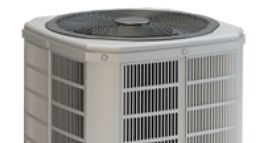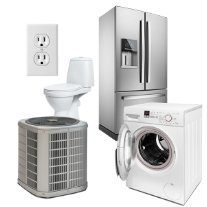After years of saving and preparation, you’re ready to close on a home. You’re past your earnest money deposit, made your down payment (and set up any private mortgage insurance payments, if applicable), and finalized your paperwork. While some of your biggest expenses are behind you, you’ll have some new expenses to prepare to take on. Here are 10 expenses every homeowner should expect.
Property Taxes
Many first-time home buyers are shocked by property taxes. They know they exist, but they may not appreciate just how much of a bite those taxes can take out of their budget. It’s important for homeowners to research and understand how much they can expect to pay in property taxes before closing.
While most listings include estimates of property taxes, you must be careful when interpreting those figures. For example, some states, cities, and local governments provide tax breaks for senior homeowners. If you buy a house from someone who’s a senior and who benefits from these tax breaks, you may be surprised when your property tax bill is much higher. Always double-check with your real estate agent about property taxes.
Additionally, property taxes can vary from state to state. For example, consider the difference between the median home price and the amount of taxes paid between Washington and Colorado.
|
Median Home Price |
Annual Taxes Based on Median Home Price |
|
| Washington |
$397,600 |
$3,752 |
| Colorado |
$397,500 |
$2,017 |
Source: WalletHub.com
Despite a modest difference in median price, Washington residents pay nearly 2x more in property taxes. This is why it’s so important to make sure you have a clear idea for what you might pay in property taxes.
Homeowners Insurance
Almost every mortgage lender will require you to purchase homeowners insurance. That’s because your lender wants financial protection should something happen to the house before you’ve paid off the loan. Until you pay off your mortgage in full (and oftentimes after), you can count on homeowners insurance being a regular expense.
The average cost for homeowners insurance is $1,899. So, you can expect to pay about $160 a month for homeowners insurance on average.
However, homeowners insurance rates, like property taxes, can vary widely from state to state and depending on how much coverage you need. For example, homeowners insurance in Oklahoma—which is prone to tornadoes, wildfires, and floods—is the nation’s highest at $4,230 a year. And the more expensive your house is, the more coverage you’ll likely need.
Utilities
Many places that rent (e.g., apartments) include utilities in the rent or parse utility costs evenly among renters, regardless of how much they use. When you own a home, utility expenses come in addition to your monthly mortgage payment.
So, instead of paying, say, $1,200 in rent and $100 a month for all utilities at an apartment, a homeowner may find themselves paying $100 a month in electricity costs alone. Then, they will need to add other utilities like gas, water, and garbage and recycling pickup.
Consider an example of the difference in utility costs between John the Renter and John the Homeowner in the same month.
| August Utility Bills |
John the Renter |
John the Homeowner |
| Rent (utilities included)/Mortgage + Interest |
$1,553 |
$1,835 |
| Electricity + Gas |
Included in rent |
$157 |
| Water |
Included in rent |
$164 |
| Garbage |
Included in rent |
$24 |
As you can see, utilities as a homeowner can really add up. And the cost can fluctuate depending on the season.
Do-It-Yourself Expenses

When you own a home, gone are the days when you could put in a repair request with your landlord. If something breaks or needs attention, it’s on you to call a technician, ask a friendly and handy neighbor for help (if you’re lucky to have one), or fix it yourself.
Do-it-yourself projects have been on the rise for years. From DIY television shows to YouTube videos, people have more access to DIY walkthroughs than ever. Nonetheless, DIY projects cost money.
Think about John the Homeowner again. One day, John notices that the sheetrock on his roof’s eaves is falling apart. Rather than hire a roofer, who quotes him $700 to fix it, he decides to replace it himself. He rents a cherry picker, buys his supplies, and fixes it in about two hours for less than $350. He feels accomplished and happy that he did it himself.
Even though he saved quite a bit of money and enjoyed the project, he still had to spend money to do it.
Systems and Appliances Breakdowns—But We Can Help You With Those!
No matter how well you maintain them, your home’s systems and appliances will break down one day. And some of those breakdowns can cost a small fortune to address. For instance, replacing a broken-down HVAC system (which controls your heating and cooling) can cost a fortune. That’s after you spend the time figuring out whom to call, finding the right technician, vetting the tech, and setting up an appointment.
In short, systems and appliances breakdowns can be a time-suck and a money pit.
Fortunately, a Home Service Plan from 2-10 Home Buyers Warranty (2-10 HBW) takes a lot of frustration out of addressing systems and appliances breakdowns.
With a 2-10 HBW Home Service Plan, you get access to our trusted Contractor Network. We set you up with a quality, local contractor to address your qualified breakdown. That means less time researching and vetting a contractor, and more time getting back to living.
Your Home Service Plan can also reduce your upfront, out-of-pocket costs.
Best of all, 2-10 HBW has several Home Service Plans that you can personalize. That gives you the freedom to get the coverage you need at a price you want.
Renovation Expenses
As with DIY projects, you’ll likely end up doing a renovation at some point. For instance, you may want to redo your kitchen or bathroom, or add a shed in your yard.
On top of the cost for parts and labor on those projects, you’ll likely pay more in property taxes after a renovation. That’s because a renovation will likely increase your home’s value. While those are good things in the long term, they do increase your expenses compared to renting.
Lawn and Garden Expenses

Taking care of your lawn and garden can get expensive. If you do everything yourself, you’ll still need to buy all the supplies and tools. Seed, lawn mowers, fertilizers, and watering systems can run hundreds or thousands of dollars. Plus, you may need to spend money to store everything. Hiring a service will cost you money every month as well.
And even if you plan to xeriscape your lawn, it’ll take you time and money to do so.
Pest Control
If you have a mouse in your apartment or notice termites, you call your landlord to get a pest company out there. When you have a house, pest problems become your problem in more than one way.
Aside from finding and hiring a pest control company to help, you may have to deal with aftereffects. Vermin can chew through important electrical wiring or worn-out piping, causing system issues or even flooding. Termites can cause severe, expensive structural damage that your homeowners insurance may not cover. It can cost you tens of thousands of dollars to fix those problems.
Radon Mitigation
Radon is a radioactive gas found all over the United States. It’s the second leading cause of lung cancer behind cigarette smoking. According to the EPA, any house can have a radon problem. And unfortunately, radon problems are hyperlocal, which means one house may have much more radon in it than a next-door neighbor’s house.
If your house has a radon problem—which means a room (typically, the basement or crawlspace) has more than 4 picocuries per liter of radon in the air—you’ll likely want to mitigate it. The average cost for radon mitigation ranges between $800 and $1,500.
Routine Home Maintenance
Even routine home maintenance will cost you money. For example, if you notice a leaky pipe under your sink, you have to spend time and money on materials, or find someone to fix it. Any time you caulk, grout, patch a hole, replace a showerhead, or repaint a room, it costs you money. While the cost of not doing routine maintenance is much higher in the long run, it will likely still cost you more than having a landlord do it.
While conditions differ among households, a rule of thumb is to expect to pay about 1% of your home’s purchase price in routine maintenance every year. So, if your house is worth $400,000, you could pay around $4,000 a year in maintenance costs. Of course, the age of the home, location, and risk factors can raise or lower that cost.
But the point is that you’ll likely need to have an additional source of funds just to keep the house in good shape.
Conclusion

While being a homeowner has more expenses than renting, it also has more perks. From privacy to freedom and flexibility, there are many reasons why Americans long to own a home. This guide can help you anticipate those expenses before they become surprising.
Whether you’re about to purchase your first home or are a longtime homeowner, 2-10 HBW can help you protect your home, your time, and your budget against routine breakdowns to your systems and appliances.









